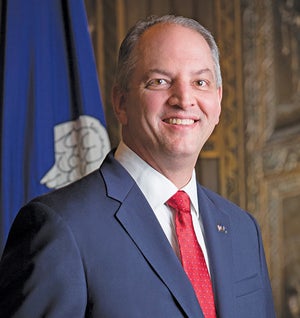Edwards’ signature on House Bill 1, the $45 billion budget approved in the waning minutes of the 2023 legislative session, came with five line-item vetoes to free up $125 million used to restore funding in other areas.
Lawmakers cut $100 million from an increase in funding for LDH as part of a compromise crafted by a conference committee of legislative leaders just minutes before votes to approve the budget. Many lawmakers have since said they were unaware of the cut when they voted to approve the budget and have called on Edwards to restore the funding following a hearing to vet the potential impact.
To balance the budget, Edwards vetoed a $125 million payment to the state’s initial unfunded accrued pension liability. Other vetoes restored $50,000 in funding for a business development program, $2 million for the Cancer Research Center, and $7.5 million for early childhood education seats.
LDH officials testified last week that the $100 million removed from the budget would likely result in cuts or reductions to behavioral health, nursing homes, cancer screenings, funds for public-private partner hospitals, ambulatory surgical centers, and other areas.
“There aren’t really any good places you can make cuts of this size,” Health Secretary Stephen Russo told lawmakers.
Edwards noted during an “Ask the Governor” monthly radio show on Wednesday that LDH is required to provide certain services.
“You can’t cut mandatory parts of your Medicaid program,” he said, “you have to cut optional services.”
Republicans in the House and Senate struggled to reconcile different approaches to the budget during the recent session, with conservatives in the lower chamber intent on staying below the spending cap in the state constitution and Senate leadership siding with Edwards to spend the state’s $2.2 billion in extra revenue on teacher raises, coastal restoration projects, transportation, capital improvements, and other mainly one-time expenses.
Other Edwards vetoes have nixed legislation to phase out the state’s corporate franchise tax; establish a 25-foot safety zone for police; repeal a requirement state employees earning over $100,000 to hold a state driver’s license and registration; provide additional pay for teachers and other school employees; mandate notification requirements for insurance companies; clarify school immunization requirements; ban central bank digital currency; and increase transparency in health care pricing.
Edwards has also promised to reject several bills involving transgender issues.
Lawmakers have not yet decided whether to return to Baton Rouge for a veto override session, though several have said they expect to do so.





